Ambassadeurs
Op deze pagina vindt je informatie over vorige en huidige ambassadeurs.
Filosofie (1-jarige opleiding)
Jutte Aartsen
My name is Jutte Aartsen, and I follow the Master’s programme in Philosophy at the University of Groningen.
After finishing my Bachelor’s degree in Philosophy in Groningen, my desire to obtain and expand my knowledge and skills in philosophy had not been satiated. Rather, I was eager to further develop myself. Moreover, I thoroughly enjoyed the freedom of choosing courses that fit my philosophical taste in the third year of the Bachelor.
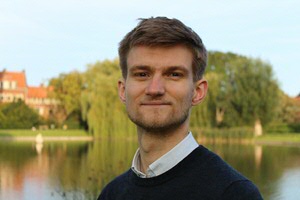
This translates well to the one-year Master’s programme. There are many courses to choose from, and courses themselves take place in small groups with an informal setting that create an atmosphere in which in-depth and fruitful discussions happen.
Additionally, in my experience the staff members of the faculty are very approachable and inspiring, which motivates me to both get to the core of philosophical ideas and theories and pursue my own philosophical works. This programme allows me to do that.
If you have any questions, please do not hesitate to contact me!
jutteaartsen gmail.com
Ben Profenius
My name is Ben Profenius, and I’m an international Master’s student from the United States enrolled in the MA Philosophy programme. I completed by Bachelor’s degree in philosophy at Skidmore College (New York), and decided I wanted to take my studies a step further and incorporate a sense of adventure. Combining wanderlust with a passion for philosophy, I chose this programme not only for the course offerings but also for Groningen itself. And I’m certainly glad I did.
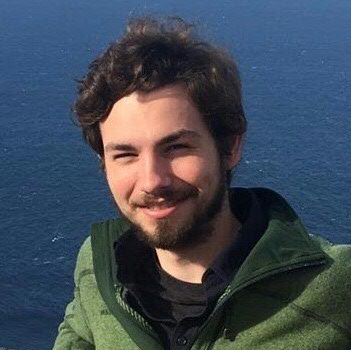
Freedom
The unique feature of this Master’s programme is the degree of freedom you’re given in your studies. Though you are required to select a specialization (choosing between Theoretical Philosophy, History of Philosophy, and Social, Ethical, and Political Philosophy) you are free to follow courses outside your specialization. In my case, my choice of courses naturally led to fulfilling a specialization, so I never felt the need to make sacrifices. You are also given free reign over your choice of thesis topic, a thoroughly independent research project. This faculty allows for more freedom than any other programme I found when applying.
Most importantly for me, the programme gives you the chance to experience Master-level philosophy without the commitment of a lengthier programme. In the US, one-year programmes are uncommon if not unheard of, and I was hesitant to apply to programmes of two years or more. Though many decide to pursue degrees beyond the programme, the one-year experience allows you to explore while considering future options.
Cosmopolitan atmosphere
I was drawn to Groningen largely because of its international reputation. With so many students, many from abroad, it is easy to assimilate into the city. If, like me, you find accommodation in a student residence, you’ll be immediately surrounded by a community of other international students eager to experience Groningen. I’ve found the Dutch experience to be deeply rewarding, learning as much about myself as other cultures, and though it can be challenging I’d encourage anyone interested to give it a try.
In the faculty, international students make up a sizeable portion of most classes. While some of us are degree students, there are also students on exchange from other universities. This gives the faculty a cosmopolitan atmosphere, and new perspectives are always encouraged. When I arrived, the faculty held an international welcome ceremony and allowed us to get to know one another. Two student mentors also helped with giving us tours of university facilities and keeping us in the loop on events held by the student association. All this contributed to feeling comfortable with the faculty immediately after arrival.
Approachable professors
Compared to my Bachelor’s programme, the faculty atmosphere is notably casual. Courses tend to be seminars rather than lectures, and class size is always on the smaller end. Discussion is informal and professors are approachable. However, casual does not mean lax, as I found myself impressed with the competence and work ethic of my Dutch classmates. This only adds to the programme atmosphere, as students and professors are together dedicated to philosophical interest. Because everyone is freely committed to the study, the work feels more valuable and discussion more collaborative.
Philosophy, Science and Humanities
Mara Tomei (combined with Medicine)
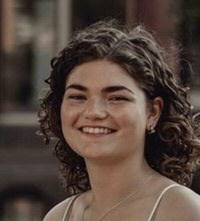
My name is Mara Tomei and I am a Philosophy of Science and Humanities (PSH) student. I have finished my Bachelor's degree in Medicine last year and chose to study something different for a year before starting my clinical internships.
One thing that I noticed was missing in my studies was a profound thinking about our actions as doctors and also in research.
In order to provide better care
There were a lot of topics that I wanted to have a deeper, philosophical understanding of in order to provide better care for my future patients. The PSH Master's was therefore the best choice for me! It gives me a better insight into my studies and makes me reflect on my role as a healthcare professional.
Contact: m.m.a.tomei student.rug.nl
Demetra Korogiannou (combined with Clinical Neuropsychology)
Demetra Korogiannou
My name is Demetra Korogiannou and I am a Philosophy, Science, and Humanities (PSH) Master's student at the University of Groningen.
I heard about the PSH Master’s program during my previous studies at the University of Groningen. Last year I followed a Master's in Clinical Neuropsychology. During my studies, I heard about this philosophy program and immediately thought it was exactly what I was looking for. This is because I was always skeptical about some philosophical topics that I came across throughout my studies in psychology. I was interested in getting more insight on these topics, and therefore a direction as such seemed perfect.
The PSH program has been a nice way to dive into some of the philosophical questions regarding my discipline. I have the chance to explore some interdisciplinary topics, get a better understanding of the philosophy of science, enrich my knowledge of psychology, and practice my writing skills. I believe that a Master's as such will make me more of an integrated and grounded mental health professional.
Philosophy (research master)
Sybolt Friso
Hi there, my name is Sybolt Friso. I am a research Master’s student in philosophy in Groningen. I started at our lovely faculty back in 2015 as a Bachelor’s student of philosophy. Early on during my Bachelor’s, I realized that I enjoy doing philosophy mostly because of two things: really sinking my teeth in philosophical texts, and carefully crafting my own written work. This Research Master's programme trains you to do both with an academic mindset.
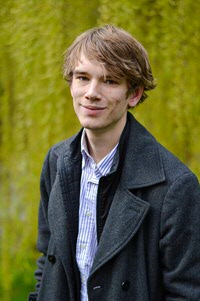
Core Issues
Let me run you through some important aspects of the curriculum. Some elements of the programme are mandatory, but you will have a lot of room to pursue (and explore!) your own interests. As for the mandatory part, you will do four Core Issues that are mostly based on the academic interests and research of certain staff members of our faculty. The fun part of these courses is that they allow you to familiarize yourself with new styles and subjects of philosophy, and as a bonus, you will learn some more about what some of our staff members are doing all day. In addition, because you will attend these courses with the entire research Master's class, they are a great weekly opportunity to bond with your classmates. I valued that social aspect a lot.
Specialization courses and tutorials
Now, to explore your own interests, you can select your preferred specialization courses from a wide-ranging catalogue of courses. You will finish each course by writing a paper with a topic of your choice. But to really explore your own interests, you will spend an additional 5 ECTS to substantially improve that paper by extending/rewriting/restructuring it in any (academic) direction that you like. You will be personally supervised by one of your teachers during this process. This is called a tutorial, and you will do three of them – all three based on the three courses that you choose. I consider these tutorials as the absolute highlights of my studies: it’s a fun way to learn doing research, to train your academic writing, and to explore the philosophical avenues of your personal interest.
Become part of the research community
In addition to these courses, a sizable chunk of the curriculum is devoted to developing your academic skills and learning more about the academic world. For instance, you’ll train your academic English, you will be motivated to attend (or speak at) conferences, you can join colloquia that are held at our faculty, and so on. But most importantly, you will be fully integrated in the research community of your department of interest: theoretical philosophy, history of philosophy, or ethics, social and political philosophy. This means that you can attend department meetings where you will read and discuss papers of fellow researchers, or where you can present your own work. The departments typically also organize plenty of reading groups that you can join (or you can set up your own if you like!). Oh, and don’t worry about settling on one of the three departments too much – you can attend the meetings of any department you like, and you can switch departments if you’re second-guessing your initial decision.
Extracurricular activities
One additional fun element of studying at our faculty is the opportunity to engage in all kinds of extracurricular activities or jobs. For instance, you can sign up for writing reading guides for philosophical books, you can help organizing a conference or summer/winter schools, you can write for our student magazine Qualia, and naturally, you can work as a teaching assistant for all kinds of courses at our faculty. And who knows, maybe you will be next year’s ambassador for this Master’s!
I hope this short text guides you a little in your decision process. If you have any more questions related to this Master’s or my personal story, feel free to shoot me a message.
Sandra Saab
Hello! I am Sandra Saab, an international student from Beirut, Lebanon. I began my studies with a Bachelor’s in business administration, and I worked in the field for 5 years in several positions including Marketing Coordinator and Communications Manager. However, I remained unfulfilled, which lead me to begin my journey in philosophy. I will admit starting over was challenging but I have since found it consistently rewarding. I currently hold a Philosophy Bachelor’s from the American University of Beirut and am earning my Research Master’s in philosophy at the University of Groningen.
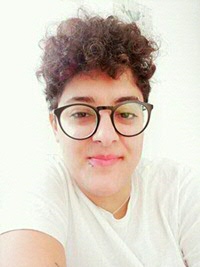
The field of philosophy was the only one wide enough for my imagination. Boundless, challenging, and fundamental, philosophy feeds my curiosity and helps me address any question I have in mind (and I have many).
Why did I choose this programme?
I knew I wanted an academic career in philosophy, and all the research I did pointed me in the direction of the University of Groningen. The number one faculty of philosophy in the Netherlands is a strongly enticing destination for me, as I knew I would be surrounded by the type of minds I want to be around. Add to this that living in the Netherlands was always a dream of mine, I looked into the philosophy programmes available. I was impressed to find there was something for everyone; three departments offer paths in History of Philosophy, as well as Ethics, Social and Political Philosophy, and the department I am part of, Theoretical philosophy. My research Master’s programme is helping me hone the skills needed for a PhD, such as critical thinking, research, academic writing, and academic presentation. Courses are very diverse and give an in-depth understanding of subjects. Professors are very much up to date and well-informed on all new topics in the field and are all renowned names who have important works and publications under their belt.
Perks of the faculty
The faculty has allowed me access to a wide and interesting variety of talks and academic events, including talks by prominent international speakers. It also offers many opportunities for becoming a teaching assistant, with professors helping you practice teaching autonomously and encouraging novelty, independence, and freedom. The 10 ECTS tutorial courses helped me practice writing papers that meet the rigorous criteria of renowned journals, with hands-on one-on-one tutoring and guidance, making sure I learn as much as possible during the process. Another amazing opportunity offered by the faculty is allowing students to present a paper in one of the talks that take place during the year, which is great exercise for a thesis and future academic work.
Since I have enrolled in this programme, I have developed and grown exponentially, both academically and personally. I have met amazing professors and fellow students who have inspired me in countless ways, and I could not be happier with my choice of either faculty or programme.
If you have any questions about the programme, I would be more than happy to assist in any way I can. Feel free to contact me on saab student.rug.nl
Philosophy, Politics and Economics
Bas Ankoné
Hi! I’m Bas, currently studying one of the most amazing programmes the UG has on offer. Ever since I’ve gotten to know of its existence, I have dreamt of following it. Last year, this dream came true: I was admitted to PPE!
I have a broad background, and a serious interest in societal phenomena, so the wide-ranging scope of PPE was a perfect fit. Having finished my Bachelor's in Philosophy of Economic and Social Sciences, in Psychology, and in Minorities and Multilingualism, all of which gave me some fundamental insights in a variety of challenges we as a society collectively face nowadays, I wanted to contribute to some of their potential solutions.
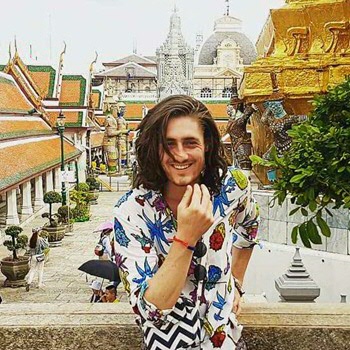
Multidimensional problems require a solid integrated transdisciplinary perspective
You might call it pragmatic idealism . And that is exactly what PPE is all about for me. Combining heart and head. A sentiment which I feel is shared across all classmates; an urge to address the issues we find problematic. The multidimensional problems we face, however, require a solid, integrated transdisciplinary perspective in order to be able to formulate policy proposals aimed at addressing them. Philosophical inquiry supports us in establishing firm arguments for why these issues are problematic in the first place. Moreover, it aids developing a critical stance for analysing complex and nuanced phenomena, which typically encompass important political and economic dimensions.
Generalists thrive in a specialist world. They themselves are specialists in interdisciplinarity, complexity, and in addressing the ‘wicked’ problems of today. PPE will therefore equip you with a toolkit which is invaluable, across all domains of life.
Epistemic injustice and diversification of university education
Two examples from my personal interest concern (1) epistemic injustice and diversification of university education, and (2) climate change. Regarding the former, I am currently inquiring into university curricula, assessing whether the courses and literature on offer are diverse enough and do not emphasise one perspective on matters only, making suggestions where necessary: it would really be a shame if we would educate entire future generations by means of syllabi which (unknowingly) restrict themselves in the knowledge they transfer, right? (Spoiler: the PPE programme is doing an amazing job on this point!)
Climate change
Regarding the latter, I am currently part of founding the Green Office’s philosophy faculty embassy, which aims at increasing sustainability at the university and beyond. We employ a hands-on approach by organising initiatives such as an open lecture series, and setting up a thinktank-like consultancy group consisting of philosophy students working on a variety of sustainability-related projects. Indeed, trying to actively contribute in pragmatic ways, to matters of the heart.
A distinct and stimulating approach
Fortunately, the PPE programme offers a distinct and stimulating approach on how to engage with these sometimes rather abstract ideas such as for example justice and progress. The faculty atmosphere is amazing, and teachers are always willing to help you in any way you need them to. I have never met such intelligent people all under one roof before in my life, and they continue to inspire me every single day. I am especially grateful that they have taught me how to employ my creativity in ways other than how I used to think it to be useful.
The only downside to PPE? The fact that it ends after one year!
Want to know more? Just hit me up and we’ll have a little chat! :D
Bas
Simone Payne
Hi, my name is Simone Payne. I am currently studying at the University of Groningen and enjoying the interdisciplinary programme of PPE. Before I started this Master's, I acquired a Bachelor's and Master's in International Business and Management. Although I enjoyed my previous studies in business, I was always more drawn to the social and political aspects. Hence, I decided to search for a Master's that incorporated these aspects. After following a Master's class from one of the PPE professors, I was confident PPE is the Master's that touched upon all my areas of interests.
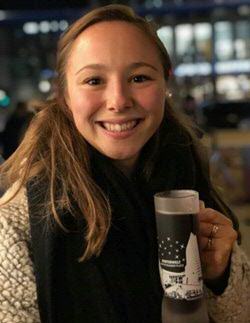
Help is always one email away!
When I applied for the programme, I did not have a background in philosophy or politics. Luckily, the student advisor sent me a reading list to brush up my knowledge in these disciplinaries during the summer holiday. That was my first good experience with PPE, even before the academic year started! As PPE is a selective Master's, the professors and staff know their students, and students are looked after. Help is always one email away! All this was very helpful, certainly during a turbulent period of the COVID-19 pandemic.
Write well-designed policies
At the start of the programme, there are a few mandatory courses that discuss essential theories and methods of PPE. In the former students gain fundamental insights on justice, markets and institutions. The latter course encompasses different research methods, such as statistics and decision theory. These courses help you to write well-designed policies during the subsequent terms of the programme. These policies' nature can vary from climate policies to school-based interventions that argue for proper nutrition to all schoolchildren in the Netherlands (which I did). The policy seminars offer an excellent opportunity to put academic knowledge into practice by designing an intervention for a real-life case.
A wide variety of views and perspectives
Besides the compulsory courses, the PPE curriculum gives students a lot of freedom to choose their electives. This will especially appeal to students with a broad range of interests, like me. The programme enables their students to follow electives from the faculties: Economics and Business, Arts, Spatial Sciences, Behavioural and Social Sciences and Philosophy. The freedom in choosing from such diverse electives allowed me to connect with students from different faculties, from whom I could learn to look at issues from different perspectives. Another aspect of the programme that I value is the diversity between PPE students. Not only in terms of nationality, but also in terms of educational background. This always led to interesting and challenging discussions with a wide variety of views and perspectives.
My future
After I graduate in PPE, I would like to work as a CSR manager or policymaker at a corporate. However, I am also interested in working for a governmental organ to tackle issues such as poverty and climate change. I have not really made up my mind yet.. Nevertheless, the good thing is that PPE opens the doors to both working environments, and therefore I still have some time to think about my future!
Always feel welcome and appreciated
Lastly, I would like to say that Groningen is a lovely student city. Approximately one-fourth of the inhabitants are students. The faculty of philosophy is the smallest faculty of the University of Groningen, located in the city centre. There is high familiarity between students and professors, which always makes me feel welcome and appreciated. In addition, the faculty also offers fun and educational activities such as student associations and a sustainability embassy.
Contact
If you have any questions about the PPE programme, Groningen or my experiences, feel free to contact me. I am happy to answer any of your questions through email or by telephone!
Lerarenopleiding
Sanne van Dam
Als filosoof met een bachelor op zak weten jullie natuurlijk als geen ander waar de filosofie om draait: vragen stellen. Wat zijn mijn vooronderstellingen, klopt dit antwoord wel, of sterker nog, klopt de vraag eigenlijk wel? Kun je dit ook op een andere manier bekijken? Deze cultuur van vragen stellen speelt ook in het filosofieonderwijs op middelbare scholen een grote rol. Waar veel vakken gericht zijn op het opdoen van ‘kennis’ (denk aan het stampen van werkwoordvervoegingen, types vulkanen of de verschillende onderdelen van het spijsverteringsstelsel), draait het bij filosofie om het onderzoeken van die kennis.
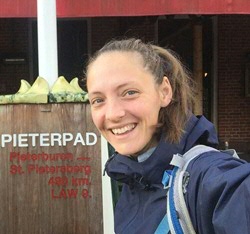
Het onderwijs heeft filosofie hard nodig
Steeds meer middelbare scholen bieden filosofie aan als schoolvak en het Nederlandse onderwijs heeft filosofie ook hard nodig. In deze tijd is het normaal om ongenuanceerd te schelden op sociale media en je mening al klaar te hebben voordat je tijd hebt gehad om erover na te denken. Filosofie maakt jongeren bewust van het belang van argumenten en de nuance in een discussie. Ik ben zelf aan de Lerarenopleiding begonnen nadat ik eerst de master Filosofie en Maatschappij heb afgerond. In die master heb ik geleerd om filosofische ideeën in de praktijk toe te passen - en welke praktijk is nou interessanter en dynamischer dan het onderwijs? Elke dag op school is anders.
Alles wat je doet heeft direct zin
Tijdens de opleiding, waarin je vanaf het begin stage loopt, wordt het leren van praktische vaardigheden het hele jaar gecombineerd met pedagogische (hoe ga ik met kinderen om) en didactische (hoe breng ik kennis over) kennis. Je loopt een jaar lang op dezelfde school stage. Hierdoor leer je het schoolleven, de leerlingen en de andere docenten goed kennen. Deze combinatie van werken in de praktijk en het theoretische leren zorgt ervoor dat alles wat je doet en leert direct ‘zin heeft'!
Dynamische omgeving
Ik heb een erg brede interesse en vind het dus extra leuk dat je als filosofiedocent van elk gebied van de filosofie kennis hebt. Tijdens de opleiding heb ik zelfs inhoudelijk nog veel nieuwe dingen geleerd. Als filosofiedocent blijf je zelf ook altijd leren! Er zijn altijd wel nieuwe vragen die zich aandienen en die aandacht verdienen. Kortom: heb je een brede interesse, hou je van een dynamische werk-/studieomgeving en combineer je graag theoretische kennis met directe praktische toepassing? Dan is de opleiding tot Docent Filosofie de perfecte Master. Ik heb er in ieder geval geen spijt van!
Heb je verder nog vragen of wil je een keer in gesprek over hoe een dag als filosofiedocent er nou eigenlijk uit ziet, stuur me dan vooral een mailtje!
Filosofie en Maatschappij
Ren de Jong
Hoi! Mijn naam is Ren en ik volg momenteel de master Filosofie en Maatschappij. Niet geheel verassend staat deze opleiding wat meer in verbinding met de maatschappij dan de andere filosofie masters. De studie richt zich zowel op de wereld binnen, als buiten de muren van de universiteit. De verbinding tussen filosofie op papier en filosofie in praktijk is wat mij aansprak en deed besluiten om voor deze master te kiezen.
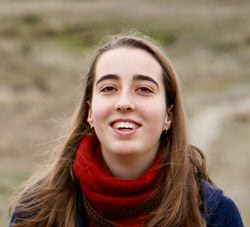
Voor deze master heb ik de bachelor Filosofie van een bepaald Wetenschapsgebied gedaan, waarbij ik in sneltreinvaart langs veel filosofische onderwerpen ben gegaan. Ik had alle grote thema’s kort behandeld in de bachelor, maar wilde bepaalde onderwerpen graag verder uitdiepen. Ik besloot dus verder te gaan met filosofie, maar wist nog niet zo goed op welke manier. Ik heb daarom wat rondgekeken naar de mogelijkheden, en mijn oog viel al snel op Filosofie en Maatschappij. Een master die me de ruimte bood voor de gewenste verdieping, en me zou leren hoe ik de onderwerpen van mijn interesse in de maatschappij zou kunnen brengen.
Eindelijk schreef ik een stuk dat ik naar mijn ouders kon sturen!
De master bestaat uit een aantal verplichte vakken: publieksgericht schrijven, filosofische interventies en een verplicht keuzevak (in mijn jaar is dat philosophy of climate science). Ik ben met name erg enthousiast over het vak publieksgericht schrijven, het laat je filosoferen op een heel andere manier. Normaal moet je voor vakken ellenlange essays schrijven die zeer theoretisch zijn, nu was de opdracht juist om filosofie begrijpelijk te maken voor iedereen en te verbinden met de maatschappij. Eindelijk schreef ik een stuk dat ik naar mijn ouders kon sturen! Niet alleen was dit een vak dat filosofie en maatschappij samenbrengt (mooi in overeenstemming met de naam van de master), het liet me ook zien wat de mogelijkheden zijn van een filosofie master.
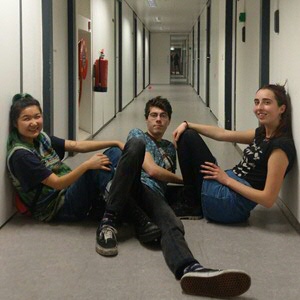
Op welke manier wil ik straks mijn filosofische vaardigheden gaan inzetten?
Bij het vak filosofische interventies, waar je zelf een filosofisch project moet opzetten, kwamen deze mogelijkheden ook weer aan bod. Er waren bijvoorbeeld meerdere gastsprekers, variërend van de Denkster des Vaderlands Daan Rovers, tot de oprichter van een adviesbureau. Stuk voor stuk hadden de sprekers ofwel zelf filosofie gestudeerd ofwel kwamen ze er mee in aanraking middels hun werk. Het is niet zozeer dat ik zelf al opzoek ben naar een baan, maar het was wel inspirerend om mensen met een filosofische carrière buiten de universiteit te zien. Hierdoor ben ik zelf ook wat meer gaan nadenken over wat ik nou eigenlijk wil doen. Dit merk ik vooral bij de stagekeuze die ik momenteel moet maken. De tweede helft van de master is namelijk gewijd aan een stage en scriptie. Omdat je bij de stagekeuze heel veel vrijheid hebt, ben ik nu druk aan het nadenken over wat voor een stage me leuk lijkt om te doen. Op welke manier wil ik straks mijn filosofische vaardigheden gaan inzetten?
Verdieping
Voor iedereen die nu schrikt van de mate van praktische vaardigheden en opdrachten: dat is niet nodig! Er is namelijk ook nog een hele stapel keuzevakken waarin je lekker ouderwets kan filosoferen. Die vakken zijn vaak een verdieping op een filosoof, een tijdvak of theorie en je kan kiezen wat je wil. Het mooie aan de keuzevrijheid is dat je onderwerpen kan kiezen waar je zelf in geïnteresseerd bent waardoor het leeswerk ook veel aangenamer is om te doen. Plus, je medestudenten doen hun leeswerk meestal ook waardoor de discussies en colleges op een aanzienlijk hoger niveau liggen dan bij de bachelor.
Al met al vind ik deze master een prettige vorm tussen filosofie leren binnen de muren van de universiteit, en filosofie praktiseren buiten de muren van de universiteit. Een aanrader dus!
